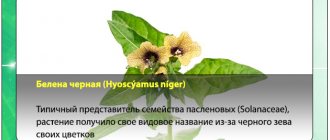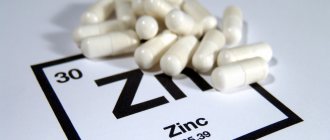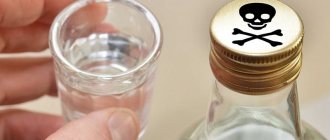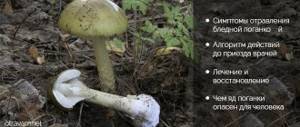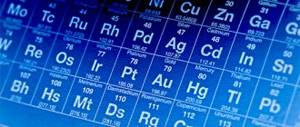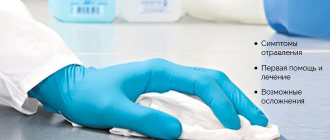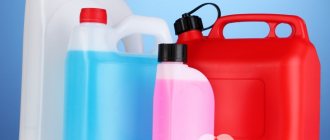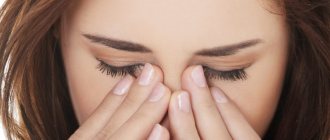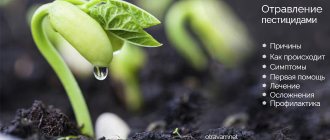Drug poisoning occurs quite often, since there are many reasons for such a process. You can be poisoned by drugs on purpose or accidentally, you can exceed the dosage without knowing the dosage, or you can get an allergic reaction due to even proper use according to the instructions or prescriptions of a doctor. The variety of drug groups complicates the rehabilitation processes of victims and the methods of providing first aid in case of drug poisoning. It is important to know at least the basic approaches to first aid in order to prevent a serious outcome in case of poisoning.
A little information
Drug poisoning can be accidental or intentional. In the first case, children are more exposed to this condition, but adults experience only minor intoxication. If we are talking about a deliberate overdose, you can get quite serious poisoning. Such intoxication is considered extremely dangerous - in the absence of appropriate help, even death is possible.
The most common overdose is of several groups of medications: antipyretics, analgesics, antidepressants, hypnotics and tranquilizers. Due to the fact that narcotic compounds can also be presented in the form of drugs, poisoning with them is diagnosed quite often.
The danger of drug intoxication
Drug poisoning most often occurs in the following conditions:
- Exceeding prescribed doses of the drug due to inattention or self-medication;
- Simultaneous use of incompatible medications or their combination with alcohol;
- Prescribing a medication without taking into account the concomitant pathology of the liver or kidneys, which neutralize and remove the active substance from the body;
- Attempted suicide;
- Increased children's interest in the home medicine cabinet, when children perceive pills as toys or candy;
- Use of expired dosage forms.
Intoxication can be acute, when a high dose of the drug is taken simultaneously, and chronic, if there has been a long-term moderate excess of the dosage. Chronic drug intoxication usually occurs under the guise of a disease of the internal organs.
Acute poisoning is dangerous due to the rapid development of life-threatening complications, and chronic poisoning is due to diagnostic difficulties and late initiation of treatment.
Causes
Drug poisoning (according to ICD-10 - T36-T50) can occur for various reasons:
- deviation from the recommended dosage;
- acceptance of overdue funds;
- uncontrolled therapy;
- combination of drugs from different groups that cannot be combined;
- wrong choice of drug.
In fact, such intoxication can lead to very sad and sometimes even irreparable consequences. So you shouldn’t treat this condition with disdain.
Codes for drug poisoning according to ICD-10 are from T36 to T50.
How to avoid intoxication?
To reduce the risk of drug poisoning, the following rules :
- different tablets must be taken separately, and not all at once;
- be sure to pay attention to the expiration date of medications;
- Before taking it, carefully read the leaflet and follow the doctor’s instructions;
- if different specialists have prescribed different drugs, be sure to consult a therapist who will tell you which drugs are compatible and which are not;
- Never leave medications in the bathroom , and do not freeze medications that are in liquid form.
General signs
In each individual case, drug poisoning may have certain characteristics. Depending on the type of medication that provokes it:
- Non-steroidal anti-inflammatory drugs - sudden abdominal pain, vomiting and diarrhea. In some cases, there is also a feeling of coldness in the hands and feet, severe shortness of breath, increased salivation, and loss of vision.
- Cardiac glycosides - delirium, fainting, arrhythmia, possible vomiting and abdominal pain.
- Antidepressants - lowering blood pressure, blurred vision, confusion.
- Antihistamines - drowsiness, redness, rapid pulse, dry mouth, shortness of breath, lethargy.
- Antiseptic drugs - nausea and acute pain.
- Analgesics - migraine, tinnitus, fainting, severe sweating.
- Preparations for diabetics - vomiting, a sharp increase in appetite, apathy, anxiety, paralysis of the legs and arms, dizziness, perspiration, increased blood pressure, impaired speech function.
- Sleeping pills - alternate drowsiness and excessive arousal, deep sleep can take the form of coma.
- Drugs that affect the liver and kidneys - the occurrence of failure, pain in the lower back or in the right hypochondrium. Often such poisoning occurs while taking antibiotics or alcohol.
Narcotic drugs
Indian hemp (hashish, plan) is a narcotic intoxicant. It is used for chewing, smoking and ingestion for the purpose of a kind of intoxication. The toxic effect is associated with depression of the central nervous system.
Symptoms of drug poisoning
Initially, psychomotor agitation, dilated pupils, tinnitus, vivid visual hallucinations (seeing colors, large spaces), rapid changes of thoughts, laughter, and ease of movements are characteristic. Then comes general weakness, lethargy, a tearful mood and long, deep sleep with a slower pulse and a drop in body temperature.
First aid for drug poisoning
Gastric lavage when taking poison orally. In case of sudden excitement - aminazine (1-2 ml of 2.5% solution) intramuscularly, chloral hydrate in an enema, cardiovascular drugs.
Nicotine is a tobacco alkaloid. Lethal dose - 0.05 g.
Symptoms of drug poisoning
If the poison gets inside the mouth, behind the sternum and in the epigastric region - a feeling of itching, areas of numbness of the skin, dizziness, headache, visual and hearing disturbances. Dilated pupils, pale face, drooling, repeated vomiting. Shortness of breath with difficulty exhaling, rapid heartbeat, irregular pulse, fibrillary twitching of individual muscle groups with the development of general clopic-tonic convulsions.
During seizures, there is an increase in blood pressure followed by a drop. Loss of consciousness. Cyanosis of the mucous membranes.
Death occurs due to paralysis of the respiratory center and respiratory muscles.
Peculiarities
Among other things, other symptoms characteristic of intoxication associated with any drug may occur:
- redness or paleness of the skin;
- unusual odor from the mouth;
- dilation or constriction of the pupils - most often observed in case of poisoning with a group of opiates.
But be that as it may, if such symptoms appear, the victim should be given emergency assistance, call a team of doctors and try to find out from the patient what specific medications he took.
General rules for providing assistance in case of drug poisoning
No matter what means a person is poisoned, the first step is to call a team of doctors and take emergency resuscitation measures:
- Try to find out what kind of medication the victim took and in what quantity.
- If the drug is taken orally, rinse the stomach and give the patient sorbents. But keep in mind that this procedure is contraindicated in case of poisoning with cauterizing agents, for example, potassium permanganate, iodine, ammonia. as well as acids and alkalis.
- If the medication is ingested through the lungs, take the victim outside and let him catch his breath. Rinse your mouth, eyes, nose and throat with cool water.
- If the medicine gets into your eyes, wash them thoroughly, then apply a gauze bandage or use glasses. To eliminate inflammation and disinfection, use Albucid or Levomycytin.
- Then let the patient rest and keep him comfortable until specialists arrive.
No matter what drugs poisoning is provoked, the liver almost always suffers more than other organs. It may take some time and the use of certain medications to normalize its functioning. You can achieve a positive result with the help of hepatoprotectors and nutritional supplements with lecithin, omega-3, selenium, amino acids, chromium and antioxidants. Although it is best to consult a doctor for advice.
Top 5 myths related to poisoning
Let's look at the myths associated with poisoning:
- It is impossible to get poisoned with a “safe” medicine or dietary supplement . In fact, this is not so: all people have individual sensitivity to medications, but it is still better not to exceed standard dosages. Even the good old aspirin and analgin have a lot of side effects and contraindications - it’s best to take all this into account. In addition, there is a possibility of “catching” an allergic reaction to a completely standard dosage of a harmless drug.
- Potassium permanganate for gastric lavage is a panacea . No, unfortunately, the method with “potassium permanganate” is only good for poisoning with certain drugs, for example benzene and its derivatives, as well as various alkaloids; in other cases, permanganate can aggravate an already serious situation or cause burns to the mucous membrane. When using the solution, it is extremely important to maintain the correct concentration of the active substance: the water should be pale pink (1:1000).
- Inducing vomiting is effective for any poisoning . Vomiting is a natural protective reaction of the body, but it is not always effective and sometimes even dangerous. The fact is that the absorption of the active substance through the gastric mucosa occurs within 20 - 60 minutes, in rare cases longer, so emptying the stomach after a long period of time sometimes does not make sense. In addition, vomit can enter the respiratory system, causing a life-threatening situation, especially if the victim is unconscious.
- Indirect cardiac massage during loss of consciousness . Cardiac massage and artificial respiration have saved and continue to save thousands of lives, but they can also be dangerous. These first aid techniques can only be performed after making sure that the victim is not breathing and has no pulse, otherwise this could result in needlessly broken ribs.
- Overdose can only happen intentionally . Yes, unfortunately, taking drugs in deliberately large dosages is a popular way to commit suicide today. But in medical practice there are a lot of situations related to accidental poisoning: children, the elderly, and people under the influence of alcohol are the main risk group. The reason may be simple inattention and absent-mindedness.
Barbiturate poisoning
Almost all derivatives of these drugs are absorbed quite quickly, and for the most part through the digestive tract. A lethal dosage is considered to be 10 medical doses of the drug.
Acute poisoning with drugs with a hypnotic effect is characterized by suppression of the central nervous system. The key sign is respiratory failure and the active development of oxygen starvation. Very quickly, breathing becomes intermittent and too rare.
In this case, the patient’s reflex functions are inhibited. The pupils initially narrow and react to lighting, and then dilate, there is no reaction. Death can occur due to paralysis of the respiratory tract and significant impairment of blood flow.
There are several stages of poisoning with sleeping pills:
- the first is falling asleep, excessive drowsiness appears, slow reaction, apathy, but the person is able to communicate;
- the second is a superficial coma, fainting is observed;
- third - deep coma, there is an absence of all reflexes, the work of the central nervous system is suppressed;
- the fourth is a post-comatose state in which consciousness gradually returns.
Possible complications of such intoxication are: pneumonia, bedsores, tracheobronchitis.
First aid
Barbiturate poisoning requires emergency intervention. The first step is to remove the poison from the body. To do this, you should resort to rinsing using about 10-14 liters of water, and it is advisable to use a probe. If the victim is conscious, you can artificially induce vomiting after drinking warm water. You can use ordinary salt, mustard powder, or inject Apomorphine subcutaneously.
To accelerate the withdrawal of barbiturates, drinking plenty of fluids and taking diuretics is recommended. In case of severe drug poisoning, intravenous administration of a 5% solution of glucose or sodium chloride is indicated.
To prevent the development of pneumonia and a sharp increase in temperature, antibiotics are prescribed - intramuscular Amidopyrine. To normalize vascular tone, vasoconstrictor drugs are used. To activate the heart, fast-acting glycosides are needed. If the patient's heart has stopped, it is necessary to administer adrenaline and perform a massage.
Antidepressant poisoning
This group of drugs is characterized by rapid absorption in the stomach and distribution throughout the body, which increases the toxic effect. The prognosis for such poisoning is always extremely serious, because the mortality rate for such intoxication reaches 20% when more than a gram of the active substance is consumed.
The cardiovascular and central nervous systems are primarily affected. Almost immediately after poisoning, overexcitation, hallucinations occur, and the temperature drops. Respiratory function is gradually suppressed and coma develops. With such poisoning, the main causes of death are often cardiac arrest and cardiopathy.
The patient's pupils dilate, the oral cavity dries out, the functioning of the digestive tract is disrupted, and sometimes intestinal paresis occurs.
Caffeine and its analogues
(theophylline, theobromine, aminophylline, aminophylline, theophedrine, diprophylline, etc.).
Of the entire group, caffeine has the greatest stimulating effect, the toxic dose of which is at the level of 1 g, and the lethal dose is about 20 g, with large individual differences. With intravenous administration of aminophylline, there are cases of death from a dose of about 0.1 g, lethal doses in children when administered in suppositories are 25-100 mg/kg.
Symptoms of Caffeine Poisoning
The main signs of toxic effects with long-term use of relatively large doses (for example, in people who abuse coffee and tea) are manifested in irritability, anxiety, excitability, persistent headaches that are difficult to respond to drug therapy, and sleep disorders. The effect on the gastrointestinal tract is manifested by a burning sensation in the epigastric region, nausea, vomiting, a sharp increase in gastric secretion, which is especially dangerous for patients with ulcers, and constipation. Acute caffeine poisoning is expressed in psychomotor reactions that turn into delirium and hallucinations, there are disturbances in sensory functions (determining time and distance) and movement speed. The initial phase of excitation is quickly replaced by a soporous state. The most dangerous complication of caffeine and its analogues is the development of acute cardiovascular failure with symptoms of collapse. Heart paralysis is also possible with rapid injection of aminophylline into a vein.
First aid for caffeine poisoning
Gastric lavage with a 1-2% solution of tannin or sodium bicarbonate (baking soda), a suspension of activated carbon. If poisoning is caused by suppositories containing aminophylline, give an enema and take a saline laxative.
To relieve psychomotor agitation and seizures, use chloral hydrate in an enema (1.5-2 g per 50 ml of water), aminazine (2 ml of a 2.5% solution with novocaine), diphenhydramine (1 ml of a 2% solution with novocaine) - intramuscularly.
Correction of cardiovascular failure in case of caffeine poisoning is difficult in the conditions of first aid, since most vasoconstrictors will enhance the toxic effect of caffeine and its analogues. It is advisable to carry out this type of resuscitation in a hospital setting, where an exchange transfusion of blood (plasma) can be performed and forced diuresis with alkalization can be used.
First aid for poisoning with antidepressant drugs
The first step is to rinse the stomach with soda, salt or activated carbon. The procedure must be carried out in the first 2 hours after the incident and then repeated. It is advisable to use an enema.
Emetic drugs are considered effective in this situation. It is strictly forbidden to use cardiac glycosides if there are breathing problems, artificial ventilation is necessary.
Hypertensin is used to normalize vascular tone. To eliminate convulsions and overexcitation, taking Aminazine and barbiturates is required. Doctors also recommend intravenous administration of Physostigmine. This drug lowers your heart rate and increases your blood pressure.
What drugs can cause poisoning?
It is possible to be poisoned by almost any medicine, it all depends on the dose taken. The most commonly reported poisonings are:
- Psychotropic substances (tranquilizers, sleeping pills, antipsychotics);
- Antibiotics (sulfonamides, chloramphenicol, penicillins, fluoroquinolones);
- Antispasmodics (no-spa, atropine);
- Cardiological drugs (cardiac glycosides, antiarrhythmic, antihypertensive drugs);
- Antihistamines (suprastin, zodak, loratadine);
- Narcotic (morphine, tramadol) and non-narcotic (analgin, baralgin) analgesics;
- Anti-inflammatory and antipyretic drugs (aspirin, paracetamol, nimesulide).
Tranquilizer poisoning
Symptoms manifest themselves in suppression of central nervous system functions. Due to muscle weakness, tremors appear, heartbeat is disrupted, and blood pressure drops. The main symptom of poisoning with tranquilizer drugs is considered to be increased peristalsis of the digestive tract, accompanied by dry mouth.
In severe intoxication, other signs are also observed: hallucinations, confusion, convulsions, severe agitation. In addition, it is possible that tachycardia, bluish skin, and breathing problems may occur.
- Signs of drug poisoning
- Actions in case of drug poisoning
- Rules for preventing drug poisoning
Drug poisoning
Drug poisoning is a fairly common occurrence, and it is not always the result of a suicide attempt. In approximately 60% of cases, people are poisoned accidentally. For example, an elderly person may take a medicine a second time due to forgetfulness.
However, among the victims there are a large number of young people. In these cases, the cause of poisoning is self-medication. Moreover, suffering from a lack of time, being constantly busy, they drink heavy doses of potent drugs for greater efficiency and faster results. The danger is further aggravated by the fact that, not wanting to waste precious time visiting doctors, people rely on the advice of their friends or advertising, which, as a rule, does not warn about possible side effects from taking the drugs presented and does not inform about the availability of other analogues, often safer and less toxic. With such self-medication, overdoses are not uncommon.
According to statistics, poisoning often occurs when using painkillers. A person, trying to get rid of pain as quickly as possible, uses several different drugs. However, many of them, differing in name, may contain the same active substance. Therefore, as a result of mixing such drugs, an overdose occurs. For example, the well-known paracetamol is currently produced by 26 companies under different names and is advertised as newfangled drugs - such as Efferalgan, Fervex, Coldrex, Calpol, Tylenol, Terraflu, etc. Taking these drugs at the same time can result in a lethal dose of paracetamol.
Advertising of drugs leads to people replenishing their home medicine cabinets with toxic drugs, since new pharmacological inventions are usually more toxic than old proven drugs.
[!]
In the USA and Europe, paracetamol ranks first in the number of cases of overdose and poisoning, often resulting in death or, at a minimum, severe liver damage.
However, even safe medications, such as aspirin, can cause poisoning. The toxic dose is usually 10 times higher than a single dose. Therefore, tablets are often packaged in packs of 10 pieces. However, for some, 5 tablets are enough to cause severe poisoning. Currently, scientists are seriously working to ensure that a tenfold dose causes as little harm as possible and certainly does not lead to death.
Medicines affect different people differently. Those whose bodies are weakened may die, while those who are stronger and healthier will only feel slightly unwell from the same dose. In addition, the effect of drugs is influenced by previous treatment and the nature of the disease.
Sensitivity to various drugs also depends on gender. Thus, men are more often poisoned by cyclophosphamide and inulin, and women by morphine and barbiturates. For women, the risk of poisoning increases during pregnancy and menstruation.
People of different ages also have different susceptibility to drug toxicity. Some medications are toxic to older people, and there are others that are more harmful to younger people.
The degree of toxicity of the drug also depends on the time of its administration. For example, an overdose of medications taken in the evening is more dangerous for the liver and blood. The results of the effects of medications are also influenced by some environmental factors - such as humidity and air temperature, atmospheric pressure. Thus, narcotic drugs become more toxic at increased atmospheric pressure.
[!]
In the USA, there is a law according to which the company producing the drug must necessarily determine its toxic dose, which is established in humans. Test volunteers are usually medical students, since the cost of testing one drug is equivalent to paying for 1 year of medical school.
The most severe consequences are observed after poisoning with psychotropic drugs. Meanwhile, the use of these drugs is becoming increasingly common. The intense rhythm of modern life increasingly leads to stress and nervous breakdowns. People with an unbalanced psyche easily neglect established norms and dosages. As a result, due to the frequency of poisonings, these drugs are classified as social poisons, along with drugs.
Psychotropic drugs include barbiturates, phenazepam, nozepam, leponex, etc. Psychotropic drugs are often used by alcoholics to get out of withdrawal symptoms. At the same time, they do not know the acceptable dosages and use handfuls of tablets. A person, as a rule, loses consciousness and in this state is admitted to the hospital, without being able to tell what he was poisoned with. The answer can only be obtained after laboratory testing.
While the patient is unconscious, all internal functions of the body are inhibited. The toxic substance is absorbed into the blood, then enters the liver, from which it again enters the blood and returns to the liver again, continuing to produce its destructive effect. This cycle is very difficult to stop.
For many women, taking pills becomes a kind of habit or addiction. At the slightest provocation they are ready to take certain drugs, not so much for treatment as for self-soothing. Some use drugs as doping. Addiction to medications is a common phenomenon, although it relates not to the physical aspect, but to the psychological one. Abroad, when drug addiction occurs, it is customary to turn to psychologists. In Russia this has not yet become a practice.
Meanwhile, such an addiction to the unnecessary use of medications will lead to the fact that over time, from frequent use of chemicals, an overdose of them occurs in the body. This situation arises due to the fact that many substances included in medications are difficult to remove from the body. If the medicine is taken for a long time, harmful substances accumulate in the body and inevitably lead to intoxication.
For example, they like to use valerian extract, which at first glance is completely harmless, for the slightest disorder. Meanwhile, valerian contains alkaloids that slow down the conduction of nerve impulses, including to the heart muscle. It is on this mechanism of action that its sedative effect is based. Given this, it is understandable that consuming valerian extract for 2-3 weeks can have detrimental effects on your health. Toxic substances, having accumulated in tissues, cause interruptions in the heart, especially if a person has naturally low blood pressure.
[!]
Nowadays, with the craze for folk remedies, people especially often resort to them in emergency situations. For example, recently cases of radiation emissions into the atmosphere have become more frequent. People in panic are buying all the iodine in pharmacies. The fact is that there is a widespread belief among people that taking an aqueous solution of iodine internally can save you from radiation exposure. However, iodine not only does not save, but also leads to severe poisoning.
Very often, overdoses occur when taking vitamins. In this case, as a rule, children suffer, whom their parents carefully stuff with healthy vitamins. This has already been discussed in detail above, but for convincing purposes one more example can be given. Thus, at one time there was a fashion for vitamin D. Mothers, in order to prevent rickets, gave it to their babies in double or even greater doses. The result was the hospitalization of such children, many of whom simply could not be saved. The reason was premature ossification of the skull due to excess vitamin D in the child’s body.
Poisoning also occurs when using potent drugs to treat simple diseases. People in pursuit of a quick effect do not think about how it is achieved. Advertising fosters a half-hearted view of medicines. People only pay attention to how quickly the effect will be achieved. However, the more effective the medicine, the more active substance it contains.
Not getting immediate results, people continue to use the drug for a longer time than specified in the instructions, or increase the dose. Meanwhile, potent substances will certainly have a destructive effect on whatever they come into contact with. Thus, when using anti-runny nose medications, the nasal mucosa may be damaged, as a result of which a person may lose his sense of smell.
[!]
Many nasal drops are vasoconstrictors. It should not be consumed for more than 2-3 days, otherwise complications will arise.
So it turns out that people, wittingly or unwittingly, poison themselves. Take, for example, anti-acne products that are widely available on the cosmetic market. The advertisement promises a quick solution to this problem. Meanwhile, it is no secret that the occurrence of acne is associated with the existence of some kind of internal disease - the digestive system, immune system, liver, etc.
Cosmetics, although not classified as drugs, nevertheless often contain potent components. For example, many creams or other cosmetics contain hormones or alkaloids that affect the central nervous system. Meanwhile, cosmetics, like medicines, are not durable products. They should be changed from time to time.
Recently, the number of hormonal drugs taken by women as part of contraceptives or weight loss products has increased. But the discrepancy between these drugs and the woman’s hormonal status leads to many side effects: uterine bleeding, ovulation disorders, etc.
If a woman, despite hormonal contraception, still becomes pregnant, but does not know about it and continues to take hormonal drugs, this has a detrimental effect on the development of the fetus. It should be noted that there are no weak hormones. Accordingly, the toxic effect on the fetus will be significant.
Signs of drug poisoning
In case of aspirin poisoning, abdominal pain, vomiting, diarrhea are observed, shortness of breath occurs, body temperature drops sharply, vision deteriorates significantly, and cardiovascular activity is noticeably reduced.
In case of poisoning with cardiac drugs - such as glycosides (digoxin or corglycone), vomiting, diarrhea, abdominal pain, as well as headache may occur, a slow pulse and an irregular heart rhythm may occur. In particularly severe cases of poisoning, elderly people experience delirium, and often cardiac arrest occurs.
Activated carbon, used as the main remedy for poisoning of any kind, has always been considered a safe drug. As a result, it began to be used in normal conditions to cleanse the intestines. However, according to clinical studies, long-term use of activated carbon leads to the formation of erosion on the mucous membrane of the stomach and intestines. In this regard, Russian doctors recommend that for minor ailments - such as bloating, flatulence, heaviness in the stomach, mild poisoning - using not activated carbon, but similar in action, but safer, new-generation drugs.
In case of an overdose of sulfonamide drugs (norsulfazole or sulfadimezine), severe renal colic with acute pain in the lumbar region may develop, and urination may cease. In addition, vomiting and some allergic reactions occur - thick rash, itchy skin, fever. After poisoning, acute renal failure may develop.
A sign of drug poisoning is sometimes a specific smell from the mouth. For example, if you smell like horse sweat, this indicates an oversaturation of the body with drugs containing penicillin.
When poisoning occurs, the patient's appearance also changes. Thus, in case of poisoning with atropine or belladonna tincture, redness of the skin occurs due to a strong rush of blood. When poisoned with iodine, the skin turns pale, with boric acid it turns red, and with bromides it becomes brown. In barbiturate poisoning, skin peeling occurs.
One of the signs of an overdose of morphine, heroin and codeine is constriction of the pupil. In case of poisoning with papaverine, noshpa and antiallergic drugs, the pupils, on the contrary, dilate.
By examining the tongue and oral cavity, you can also determine the type of poisoning. Thus, poisoning with aspirin causes excessive salivation, and with atropine and ephedrine, on the contrary, dry mouth.
The toxic effect of the drug also affects human behavior. Barbiturate poisoning, for example, leads to impaired coordination of movements.
Actions in case of drug poisoning
In case of drug poisoning, you must first rinse the victim’s stomach and induce vomiting.
Gastric lavage is carried out by taking several glasses of water with salt or dry mustard. You can also use a light pink potassium permanganate solution. When preparing it, you need to make sure that in no case are there any undissolved purple crystals in it, which can cause a burn on the walls of the stomach.
[!]
The prevailing opinion that milk is the most effective remedy for any poisoning is, in essence, not suitable for medicine. The fact is that many medications dissolve well in fats, which are found in abundance in milk. At the same time, they are better absorbed by the body, which means they produce a toxic effect faster. Thus, drinking milk during drug poisoning can greatly harm the victim.
Washing is repeated periodically. In addition, the victim is given activated carbon to drink, preferably in the form of a powder solution (2–4 tablespoons per 100–200 ml of water). To obtain powder, you can crush activated carbon tablets. Activated carbon is very effective at deactivating most medications. 10 g of coal is enough to completely neutralize a lethal dose of sleeping pills or aspirin.
If a person is poisoned by drugs that have a depressant effect on the central nervous system (sleeping pills, sedatives, etc.), then the victim is given tea to drink, since it contains stimulants.
Rules for preventing drug poisoning
To avoid poisoning or overdose, you must first carefully study the instructions for use of the over-the-counter drug. It is also advisable to always consult a doctor about taking any medication.
[!]
Drug poisoning can result from the use of counterfeit drugs, of which there are so many on the Russian market. They are, as a rule, made from low quality raw materials or not at all from those substances that are necessary to provide the action characteristic of this medicine. Fake medicines will be discussed in more detail below.
You should also not take the drug more often than indicated in the instructions or prescribed by your doctor. In addition, you should try not to exceed the recommended dose.
To avoid poisoning, do not take medications simultaneously with alcoholic beverages or other medications without consulting your doctor.
To prevent the medicine from becoming more harmful, storage rules must be followed. Do not expose medications to heat, moisture, or direct sunlight. Therefore, you should not store medications in the bathroom. Liquid medicinal products should not be frozen.
Table of contents
How to help
The primary role is played by timely rinsing using activated carbon, salt laxative and siphon enema. No less important is the use of drugs for normal heart function - Cocarboxylase, Strophanthin, Korglykon, vasoconstrictor medications, as well as alkaline solutions. In the future, oxygen therapy is recommended for patients.
Poisoning with antipyretic and anti-inflammatory drugs
With such intoxication, tinnitus, blurred vision, and all kinds of stomach upsets, including diarrhea, and rapid noisy breathing, most often appear. With severe lesions, the development of a coma cannot be ruled out. It is not uncommon for patients to experience uterine and nasal bleeding. The further prognosis for such drug poisoning (ICD-10 code - T39) is most often favorable.
Antiseptics
Iodine Lethal dose: 2-3 g. Symptoms: brown staining of the tongue and oral mucosa, vomiting of brown and blue masses (if there is starch in the stomach contents), diarrhea. Headache, runny nose, skin rashes. Irritation of the mucous membrane of the respiratory tract. In severe cases - pulmonary edema, convulsions, small rapid pulse, coma.
First aid for iodine poisoning
Gastric lavage, orally - liquid starch or flour paste in large quantities, milk, mucous drink, laxative - burnt magnesia (magnesium oxide).
Treatment: orally 1% sodium thiosulfate solution in an amount of 250-300 ml. Symptomatic therapy: treatment of burns of the digestive tract.
Potassium permanganate (potassium permanganate). Lethal dose: 0.5-1 g.
Poisoning with drugs for the cardiovascular system
With such intoxication, intravenous drip administration of novocaine with glucose is necessary, as well as intramuscular administration of magnesium sulfate and subcutaneous administration of diphenhydramine. If drug poisoning (according to ICD-10 - T46) has led to convulsions and difficulty breathing, the use of a 10% barbamyl solution, 8-10 ml intravenously at intervals of half a minute, is required. This therapy is carried out until the seizures are eliminated. Enemas with a one percent solution of chloral hydrate are also used.
If the described assistance for poisoning with drugs of the glycoside group is unsuccessful, intravenous administration of “Ditilin” is necessary, followed by artificial respiration. If the pulse has become too rare, the use of Atropine and calcium chloride intravenously is required. In the future, oxygen therapy is recommended for the patient.
Strychnine
Lethal dose of strychnine: 0.2-0.3 g. Strychnine is easily absorbed from the gastrointestinal tract and also easily penetrates the body from all injection sites.
Symptoms of strychnine poisoning
Symptoms of striznin poisoning include: agitation, headaches, shortness of breath. Increased tone of the occipital muscles, trismus of the masticatory muscles, tetanic convulsions at the slightest irritation. Spasm of the respiratory muscles with the development of severe chest rigidity. Death occurs due to asphyxia (suffocation).
First aid for strychnine poisoning
If poison is ingested, early gastric lavage, saline laxative, chloral hydrate in enema again. Sedative therapy: barbamyl (3-5 ml of 10% solution) into a vein, morphine (1 ml of 1% solution), diphenhydramine (2 ml of 1% solution) under the skin. In case of breathing problems, intubation anesthesia using muscle relaxants (listenone, diplacin). Forced diuresis (alkalinization of urine).
In case of poisoning with ANY medications you should:
- Give the victim 4-5 glasses of warm water to drink (children - 100 g per year of life).
- Induce vomiting by pressing on the root of the tongue or tickling the pharynx.
- Rinse the stomach again until completely cleansed.
- Give the victim 5 tablets of crushed activated carbon (washed down with water).
- Give plenty of fluids: alkaline mineral waters, 2% baking soda solution.
- If vomiting in an unconscious state, turn the victim's head to the side.
IMPORTANT!
Call emergency medical help immediately! This must be done even in cases where, at first glance, the poisoning is mild, because after some time a sharp deterioration in the victim’s condition may occur.

